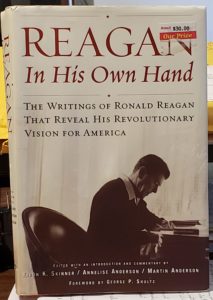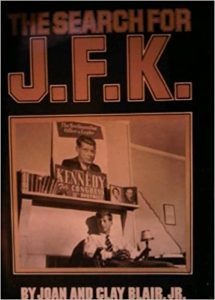“I’m not wearing a mask. I’m a free person and you can’t make me! The government can’t make me! I won’t be a sheep like you!”
“If you don’t wear a mask you are purposely killing people. Murderer!”
These are the two ends of the covid argument, and I’m sick of it. The rhetoric is way over the top on both sides. It’s the same for the vaccines, though, if anything, it’s even worse for the vaccines. People yelling past each other on each of these issues, not only on social media, but in real life as well.
I’m trying to ignore it as much as I can. I’m a reasonably intelligent person and don’t really feel like I need the government telling me what to do. They are a good data-gathering organization and, if they will just do that and make the aggregated data available and easy to find and understand, without hiding any data that might argue against some kind of prevailing wisdom. I can then make good decisions. I did that. I received a vaccine (J&J was the one being offered at the place where I went) and, since the resurgence in covid cases I’ve gone back to wearing a mask in public.
But the question I have is do people not know how to get what they want? It’s an old business adage: “Do you want to be right, or do you want to get what you want?” The idea behind this is sometimes you might be right and lose the argument or not get what you want. A hypothetical: You’re a Republican and want to put a campaign bumper sticker on your car. But you want to get business from a certain city and the mayor is a Democrat. So, to get what you want (more business and more profit) you don’t worry about being right (displaying a Republican bumper sticker). Don’t worry about being right; instead get what you want.
On social media, George Takei posted this:
Telling me you are proudly unvaccinated is like telling me you’re a drunk driver. You’re not a patriot. You’re not a freedom fighter. You’re a menace.
Does Takei really think this will convince people who have resisted getting the vaccine to now get it? Is this how you win arguments? I don’t think so. I suppose Takei feels pretty good about himself. In a witty way he called those who refuse the vaccine idiots. But he is, in fact, hurting his own cause. No one is going to decide to get the vaccine because George Takei calls them a menace. Because Takei speaks this way he will cause some who were on the fence to do the opposite of what he wants them to do. So I say to him, “George, learn how to get what you want rather than be right.”
I want to suggest an alternate approach. It’s the approach our church took. First, a little history. When the pandemic hit in March 2020, our church ended in-person services. Services went on-line. Sometime around June 2020, they began services in-person but continued on-line and did not encourage in-person attendance. The sanctuary that seats 600 was reconfigured to seat less than 100. Masks were required. Physical distancing was required. Life groups didn’t meet in person. Hand sanitizer was everywhere. Then, in September 2020, we increased seating in the sanctuary just a little. That’s when I went back to in-person church. Then, somewhere around Jan-Feb 2021, things opened up a little more. People started coming back in larger numbers. We still physically distanced, but masks were mostly done away with.
Then, somewhere around June 2021, covid cases began spiking in northwest Arkansas. A few people went back to wearing masks. A few vulnerable people went back to on-line church. In July the church re-instituted a protocol, a recommendation, to wear masks in any part of the church where you couldn’t distance from others. But this was all made voluntary with a request/strong suggestion that you do this. And, since that was re-instituted, we have had 100 percent compliance with these voluntary standards. 100 percent compliance. Maybe some who can’t wear masks or won’t wear masks decided to stay away or attend on-line.
Our pastor wrote a blog post about this. It’s worth reading.
An Open Letter To My Church
It’s a little long, but not so much. I hope you read it. Here’s the salient point in it.
I looked around the lobby this past Sunday and everyone was wearing masks, complying with the recommendation of our board. This happened not because you were forced, but because you believed the wellbeing of your neighbor was more important than your personal comfort or freedom.
My point is that beating up people, insulting people, shaming people, to convince them to wear a mask in public, be vaccinated against covid, or practice physical distancing won’t work. It won’t. But giving them information and explaining to them what you think is right, what you hope they will do and want them to do, for their own good and for the good of the community, will result in people doing what you want—to a much larger extent than shaming/insulting/belittling.




